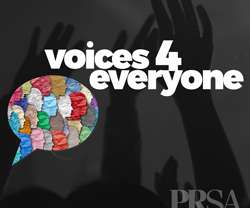To Serve the Public Good, PR Pros Can Help Stop Spread of Vaccine Disinformation
PRSay
MAY 4, 2021
Particularly now, as misconceptions, inaccuracies and untruths threaten to prolong the coronavirus pandemic, we need to tap into our profession’s roots in behavioral science and fulfill our profession’s ethical obligation to serve the public good by helping consumers of news and information make better decisions, online and off.












Let's personalize your content